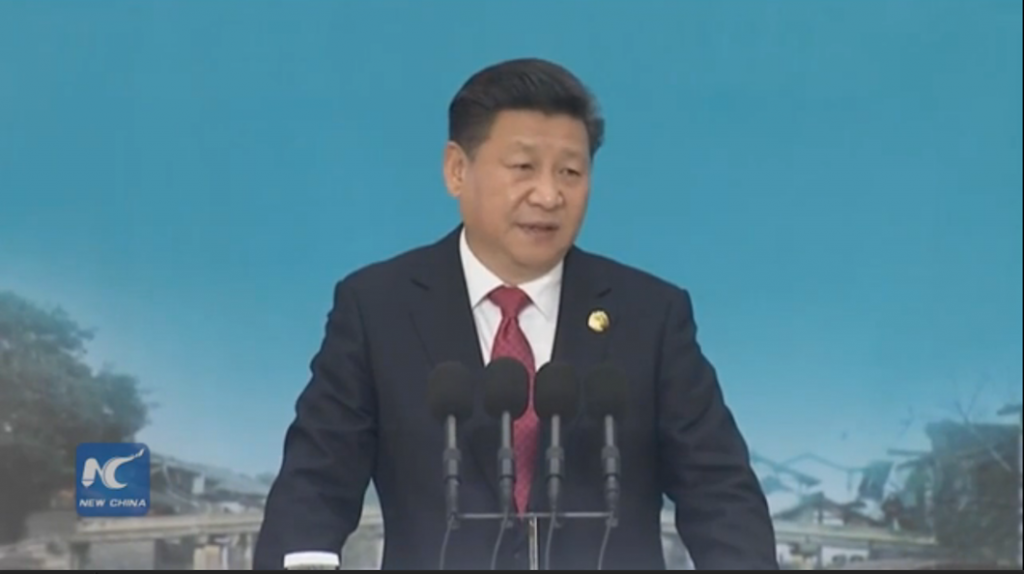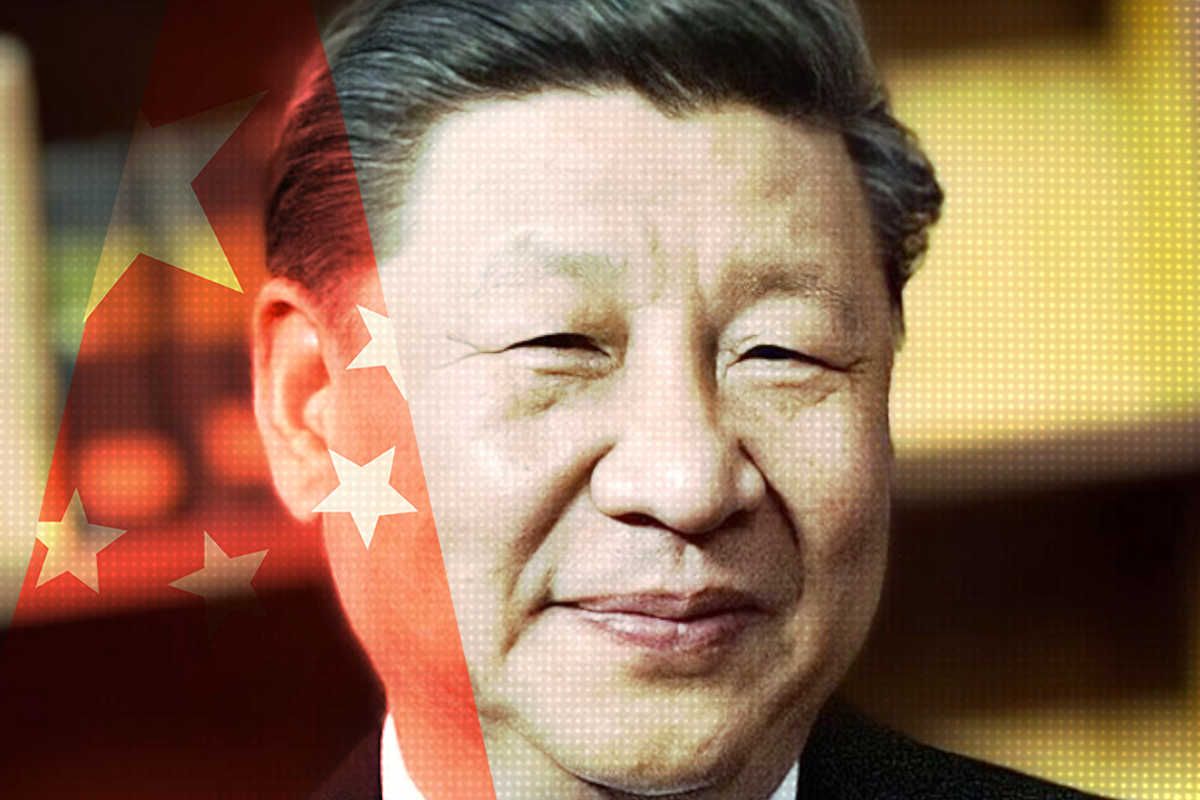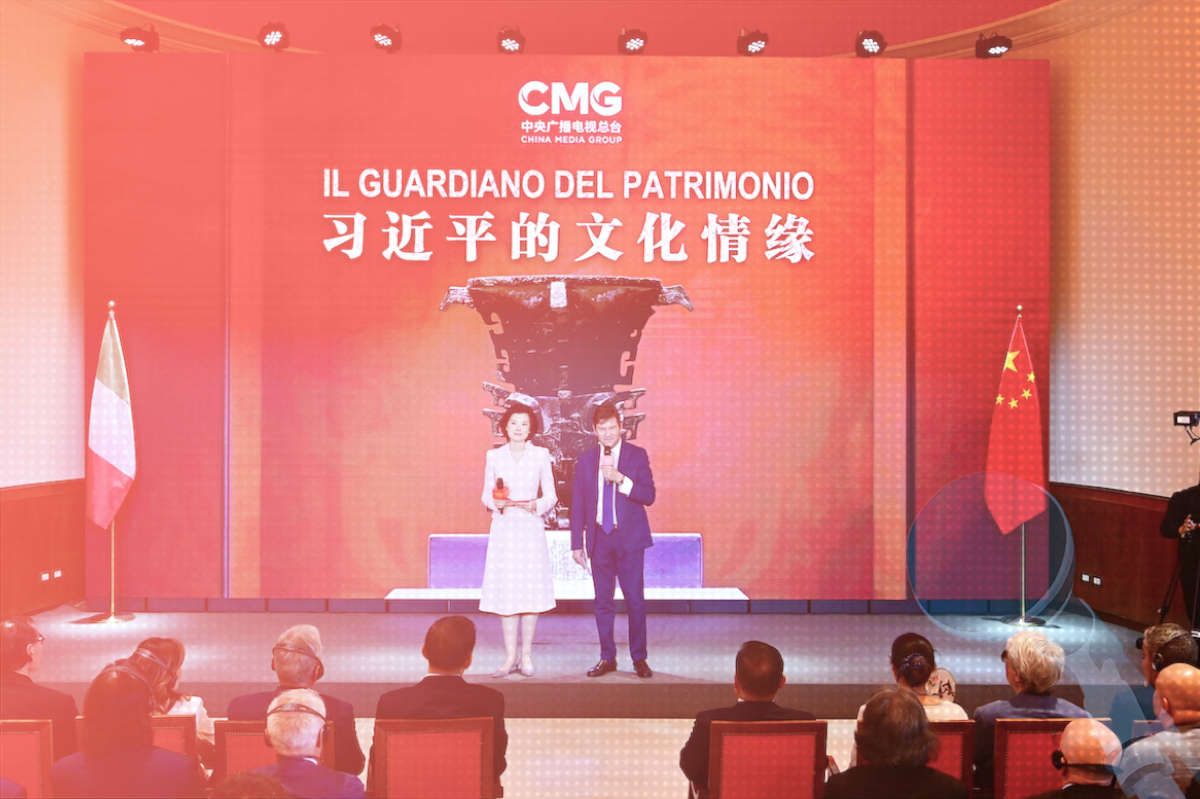China’s World Internet Conference is last week’s news, but the event will likely reverberate for years to come, as China seeks international support for its notion of a “multilateral” approach to the governance of global cyberspace.
The piece that follows is one of the most informative I have read so far on the so-called “Wuzhen Summit,” attended this year by President Xi Jinping. Published in The Initium, a Hong Kong start-up that has done some very good reporting on China over the past six months, the piece is written by Fang Kecheng (方可成), a former journalist at Guangzhou’s Southern Weekly newspaper.

Fang, the author of a book called Old Friends of China (中国人民的老朋友) about the history of China’s foreign policy, is currently studying for his PhD at the University of Pennsylvania.
My translation follows. Enjoy.
Diplomacy is the Point of China’s World Internet Conference
By Fang Kecheng (方可成) / The Initium
On December 18, the curtains closed on the three-day long 2nd World Internet Conference (WIC2), held in the town of Wuzhen in [China’s] Zhejiang province.
The event was lively: Chinese internet bosses attended the event, and quite a number of well-known [foreign] internet companies sent their representatives to attend the conference. The latter included a founder of LinkedIn, which has launched a castrated version for the China market. In addition, many domestic and foreign officials, representatives from international organisations, entrepreneurs, experts and others were on the guest list.
Observing from the virtual sidelines, ordinary [Chinese] internet users did Photoshop jobs on images emerging from the conference, their interest focusing chiefly on the likes of Jack Ma (马云), Pony Ma (马化腾), Robin Li (李彦宏), Lei Jun (雷军), Liu Qiangdong (刘强东) and Zhou Hongyi (周鸿祎) . . . . Without a doubt, these billionaires from China’s internet giants are celebrities in today’s China. But the Jack Ma’s and Lei Jun’s weren’t in fact the heart of the World Internet Conference. They were merely in Wuzhen as supporting characters for another. I‘m talking of course about Xi Jinping (习近平).
At this conference organised by the Cyberspace Administration of China (CAC) and the provincial government of Zhejiang, the Chinese government was the principal character at the very core. And the core objective of the Chinese government in holding this conference was to push out a core agenda — which was not to discuss those topics the commercial and tech media love to talk about, like the internet industry, or the “Internet plus” strategy, or internet banking, or intelligent manufacturing, or tech startups, or any of that.
Two words were at the heart of the World Internet Conference agenda: foreign affairs (外交). Everything else was meant only to serve these two words.
A Victory on the Eve of the Conference
In November last year, when the 1st World Internet Conference was held in Wuzhen, Xi Jinping sent a message of congratulations to the event. This year, Xi attended in person and made a speech, signalling clearly that China’s leadership was giving the conference high priority.
The topic of Xi Jinping’s speech was “promoting the transformation of the global system of internet governance” (推进全球互联网治理体系变革), for which he outlined “four principles” (四项原则) and made “five propositions” (五点主张). This was the core agenda of the World Internet Conference.
It is the hope of China’s government that a new concept for internet governance can be disseminated across the world, and the first and essential principle of this concept is the notion of “respecting cyber-sovereignty” (尊重网络主权). In more concrete terms this means, in Xi Jinping’s words, “respecting each country’s right to choose its own internet development path, its own internet management model, its own public policies on the internet, and to participate on an equal basis in the governance of international cyberspace — avoiding cyber-hegemony, and avoiding interference in the internal affairs of other countries.”
Not surprisingly, one of the most important diplomatic guests at the conference, Russian Prime Minister Dmitry Medvedev, supported Xi Jinping’s proposals in his own speech.
In fact, China and Russia have acted in close partnership to promote this principle of [internet] governance. And as chance would have it, the day before the curtain opened on WIC2, China, Russia and other allies achieved a limited foreign relations victory at another important conference on internet governance.
On December 16, the 10th meeting of the World Summit on the Information Society (WSIS10) was held at United Nations headquarters in New York. As the name suggests, the chief task of this meeting was to review the implementation of WSIS work since the holding of the first summit 10 years ago in Geneva. While the results of the review are not binding on participants, it remains an important United Nations document, and it could have a strong impact on the future development of the global internet governance system.
Through a six-month process of negotiation [over the language of the WSIS10 document], China, Russia and other countries successfully lobbied for the inclusion of the term “multilateral” (多边) [in the final language of WSIS10]. This word had drawn fierce opposition from Western countries, companies and civil society groups throughout the summit.
Last year, representatives from nearly 180 countries attended another major conference on global internet governance called NetMundial, hosted by Brazil. At that conference, China energetically pushed the idea of “multilateral” internet governance. But the resolution emerging from that event did not ultimately include the word — resulting in the refusal of China, Russia, Iran, India and a number of other countries to sign the document.
In his speech to the 2nd World Internet Conference, Xi Jinping stressed the word “multilateral”: “[We must] build,” he said, “a multilateral, democratic and transparent governance system for the global internet.”
Why is this word so important? And why does the adoption of this language mean China has achieved a tentative victory in its foreign relations push over the issue of global internet governance?
Multilateral VS Multi-stakeholder
In the language of global internet governance, the word “multilateral” stands in opposition to the word “multi-stakeholder” (多利益相关方).
These words, while superficially similar, signal two radically different visions of internet governance.
The “multi-stakeholder” approach to internet governance has up to now been affirmed and accepted by the vast majority of Western democratic countries. Its core idea is to allow all parties with an interest in the internet to sit down together on equal footing, openly and transparently to mutually discuss the development of the internet. These interested parties include national governments, international organisations, private companies, members of the engineering community, academics, civil society groups and ordinary internet users — and no single parties are to have any decisive dominance over the process. For this reason, some have referred to this approach as a “distributed” (分散 or 分布式) approach to governance.
In contrast, the core of the “multilateral” approach is to position national governments as the leading decision-makers. Various countries can make their own isolated decisions about internet governance methods, and no country can interfere [in this right].
The Brookings Institution, [a private nonprofit organisation] in the United States, said in a report that while this approach to governance also allows for the participation of various side, it affords governments more special privileges (特权). As a report in the New York Times put it, “[m]ultilateral is code for states making the rules.”
In the guest makeup of the 2nd World Internet Conference itself we can see the shadow of the multilateral governance approach: state governments play the leading role, while the remaining seats are taken by foreign dignitaries friendly to China, internet business leaders and a selection of leading academics and engineers. Finally, overseas university students are bundled in to give the event a more lively appearance. As for civil society groups, they are left entirely out of the equation.
What result will either of these governance approaches have?
For one thing, we can say that if the multi-stakeholder approach had been truly and properly implemented in practice, then massive spying programs like that of America’s National Security Agency (NSA), [exposed by whistleblower Edward Snowden], would not have happened, because other stake-holders could have monitored such conduct, other national governments and international organisations could have pressured the United States over these programs, corporations could have resisted demands that they be complicit, and civil society groups could have spoken out on the issue.
And what if a “multilateral” system had been in place instead? In that case, NSA spying would probably have been more reckless, because each national government could claim a leading role on questions of domestic internet governance, and civil society groups and ordinary consumers would be given inferior status. Other national governments and international organisations, meanwhile, would have not right to say a thing.
It is worth pointing out that the current system at the United Nations is at its very foundation a multilateral foreign affairs system. In the Charter of the United Nations, it says that the body “is based on the principle of the sovereign equality of all its Members,” and it explicitly mentions “non-intervention in domestic affairs” and other principles. For this reason, the Charter is often cited by China in its push for a multilateral system of global internet governance. In his WIC2 speech, Xi Jinping even singled out the document, saying: “The principles and spirit of the Charter of the United Nations should be applied to cyberspace.”
The 2nd Third World Internet Conference?
In order to advance the multilateral approach to internet governance, not only has China spared no effort in its related diplomacy at the United Nations and at other global events organised by other countries, but it has also created its own dedicated foreign affairs base back at home. For this is exactly what the World Internet Conference amounts to.
In the midst of this year’s event, there was some derision about the motives of the foreign dignitaries present — essentially, that it seemed they had attended in strong numbers only to queue up for economic assistance from China. A joke made the rounds on social media that went like this:First, let me warmly welcome this lofty event, the 2nd World Internet Conference, which is attended by Uncle Xi himself! However, searching all around, it seemed to me that the title of the event must have been misreported. Only after careful consideration did I realise they left off a word: “third.” We should say that the curtain has opened on the 2nd Third World Internet Conference. China is being visited by representatives from this -stan and that -stan, testing my knowledge of geography. China must be mighty. From now on, when developed nations host conferences, let’s not even go.
In fact, DT Finance made its own accounting of the World Internet Conference and found that just 8 of the 21 major countries attending WIC2 ranked above the global average according to the ICT Development Index (IDI) of internet indicators in the recently released 2015 report by the International Telecommunications Union (ITU), the specialised UN agency for information and communication technologies, or ICTs.
This tells us that the vast majority of developed nations in the West have not bought into China’s multilateral program. On the other hand, it reveals the thread of China’s foreign policy strategy here: Begin by uniting around this idea all of those countries in the so-called Third World that seek economic assistance, or have deep misgivings about Western democracy. For their part, Chinese internet users came up with their own very vivid characterisation: “Buy a high-speed rail, we’ll throw in a national firewall free of charge” (买高铁送防火墙).
According to the above-mentioned report in the New York Times, China’s victory over the language of multilateralism at WSIS10 owed in part to this alliance of countries. Lately, the so-called Group of 77 (G77), a loose coalition of developing nations at the United Nations, has been in negotiations over support for the multilateral model of internet governance China has pushed so hard.
In his WIC2 speech, Xi Jinping said that, “The current rules for the governance of cyberspace made it difficult to reflect the hopes and interests of the majority of countries.” Now we understand what Xi means by the “majority of countries.”
Pro-government pundits at home have spared no effort in praising China’s foreign relations efforts on this front. Wang Yiwei (王义桅), director of the School International Affairs at Renmin University of China, wrote in the overseas edition of the official People’s Daily newspaper that Xi Jinping’s four principles of internet governance “remind us of the five principles of peaceful coexistence that China presented at the Bandung Conference in 1955. One is for today, the other for 60 years ago; one is for the virtual world, the other for the physical world; four principles, and five principles, both emphasising sovereignty and peaceful coexistence. [These principles will] take internet governance concepts to a new and elevated place, and will become the linchpin of global internet order.”
Wang is not entirely remiss in likening the 2nd World Internet Conference to the Bandung Conference that took place in Indonesia. The various national independence movements unfolding in the wake of the Second World War formed the backdrop of the Bandung Conference, and this World Internet Conference is happening against the backdrop of the growing penetration of the internet into these developing countries, so that they are now the chief source of new internet users globally. The Bandung Conference was directed toward colonialism, and toward the hegemonism of the United States and the Soviet Union — and there is no denying that for historical reasons, the internet today is still principally dominated by the United States.
But there are also very obvious differences between Bandung and the WIC. On the internet today, the United States does not have the kind of hegemonic status it certainly possessed 60 years ago. Colonialism is more or less a spectre of the past. The Cold War ended long ago. China today is in a far more powerful position than it occupied at the time of the Bandung Conference. It is no longer a weak player hoping desperately to find its place in the world, a newly born political power. It is a major power whose economy has risen, that itches for its chance politically. To give you one example of how this is already happening, the current secretary-general of the International Telecommunications Union is Zhao Houlin (赵厚麟). His election naturally has owes a great deal to the efforts of China’s government, and from his post Zhao will be sure to do his utmost to assist China’s efforts in pushing the multilateral internet governance model.
The finally difference we must note between the Bandung Conference and the World Internet Conference leaves us with what is perhaps the most important question of all. The Bandung Conference arose in opposition to colonialism and imperialism, and it was significant in supporting popular liberation movements and independence — with the support and sympathy of societies in the West.
But what, we should ask, does today’s World Internet Conference oppose, and what does it support?





















